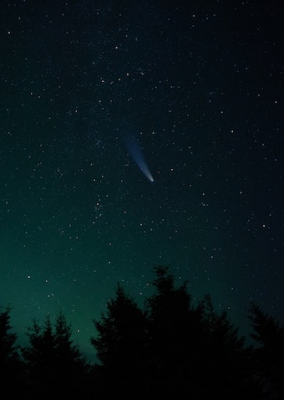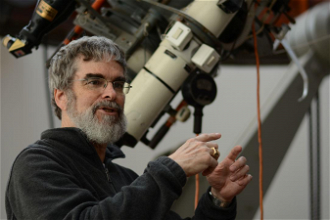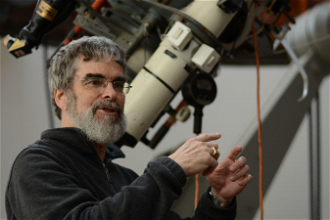New asteroids named after three Jesuits and a Pope

Photo by Chris Henry on Unsplash
Source: Vatican News/International Astronomical Union
562971 Johannhagen, 551878 Stoeger, 565184 Janusz and 560974 Ugoboncompagni. These are the names of the four asteroids named after three astronomers from the Vatican Observatory, and Pope Gregory XIII.
Pope Gregory, who was born Ugo Boncompagni, is the Pope to whom we owe the reform of the calendar (later known as the Gregorian Calendar) and the beginning of the tradition of papal astronomers and observatories. The astronomers after whom three celestial bodies have been named are the Jesuits Johann Hagen, who was director of the Vatican Observatory from 1906 to 1930, Bill Stoeger, cosmologist and theologian, and Robert Janusz, currently on the staff of the Vatican Observatory.
The names of the four 'famous' asteroids were published by the International Astronomical Union in its latest bulletin on 7 February.
More than thirty asteroids today bear the names of Jesuit religious.
Among them is Fr Christopher Clavius, who was commissioned by Gregory XIII to work on the calendar project - 'his' asteroid is called 20237 Clavius - and Fr Giovanni Battista Riccioli (1598-1671) who developed the lunar nomenclature system still used today; the now famous 'Sea of Tranquility' where Apollo 11 landed, for example, owes its name to him.
Since Jesuits have travelled extensively for centuries, there are other asteroids named after Jesuits who lived in different parts of the world, such as the Philippines (4866 Badillo), Paraguay (6438 Suarez), China (31124 Slavicek), the Democratic Republic of Congo (23443 Kikwaya) and Argentina (2490 Bussolini).
Several other asteroids were named by astronomers of the Specola Vaticana, among them 302849 Richardboyle, 119248 Corbally, 14429 Coyne, 4597 Consolmagno, 23443 Kikwaya and 11266 Macke.
According to the International Astronomical Union, the naming of a particular asteroid (or minor planet) can take, in some cases, decades.
When a new minor planet is discovered, it is given a provisional name based on the date of discovery. When the object's orbit is determined in such a way that its position can be reliably predicted in the distant future, usually after it has been observed four or more times as it approaches Earth, then it is assigned a definitive number, issued in succession by the IAU's Minor Planet Centre.
At this point its discoverer is invited to suggest a name. There are also guidelines in this regard: names of pets or names of a commercial nature are not allowed and names of individuals or events known primarily for political or military reasons cannot be used until 100 years after the death of the individual or the date of the event.


















